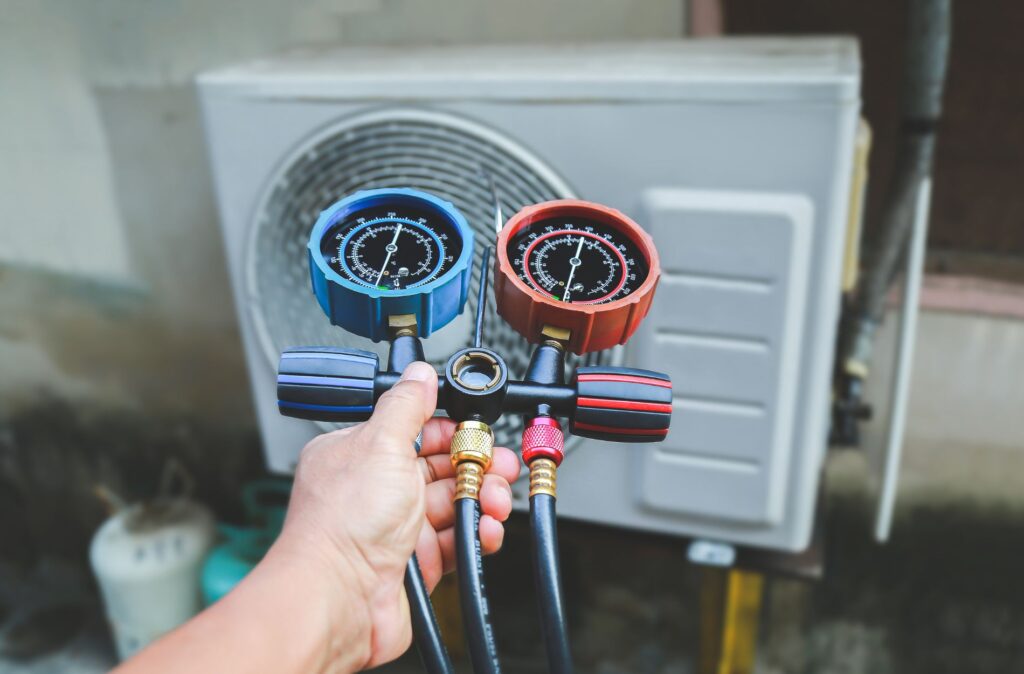HVAC
Selecting the right HVAC system for your home is a critical decision impacting your comfort, energy efficiency, and utility bills. With so many choices available, it can be difficult to determine where to start. Homer’s River City Heating and Cooling Inc. recognizes the intricacies involved and is proud to assist you at every stage of the process.


How to Choose the
Right HVAC System for Your Home
Choosing the right HVAC system for your home can be a daunting task, but Homer’s River City Heating and Cooling Inc. is here to help. The right system ensures your home remains comfortable throughout the year while being energy-efficient and cost-effective. Here are five key steps to guide you in making the best choice:
- Assess Your Home’s Heating and Cooling Needs: Evaluate the size of your home, the number of rooms, and the local climate. This will aid in identifying the necessary capacity and type of HVAC system needed.
- Consider Energy Efficiency: Seek out systems with high SEER (Seasonal Energy Efficiency Ratio) and HSPF (Heating Seasonal Performance Factor) ratings. Although these energy-efficient units may be more expensive initially, they offer considerable savings on your energy bills in the long run.
- Evaluate Different Types of HVAC Systems: Central air systems, ductless mini-splits, heat pumps, and furnaces each have unique benefits and limitations. Consider what suits your home and budget best.
- Research the HVAC Brands: Quality and reliability differ across brands. Researching established brands and reviewing customer testimonials can offer valuable insights into the longevity and effectiveness of different systems.
- Consult with Professionals: Seek advice from HVAC experts like us. We provide personalized recommendations based on your home’s specific needs and our extensive industry knowledge.
Understanding
HVAC System Efficiency Ratings
Understanding HVAC system efficiency ratings is crucial for making an informed decision. These ratings indicate how well a system converts energy into heating or cooling, directly impacting your energy bills and environmental footprint.
SEER Rating
HSPF Rating
AFUE Rating
EER Rating
Common HVAC Problems
and How to Prevent Them
Maintaining your HVAC system can prevent common issues and extend its lifespan. Here are some frequent problems and tips on how to avoid them:
- Clogged Filters: Replace filters every 1-3 months to ensure proper airflow and system efficiency.
- Refrigerant Leaks: Regular maintenance checks can identify and fix leaks before they cause significant damage.
- Thermostat Malfunctions: Make sure your thermostat is properly calibrated, and think about upgrading to a programmable or smart thermostat for enhanced control.
- Dirty Coils: Clean evaporator and condenser coils annually to maintain efficiency and prevent system strain.
- Electrical Issues: Inspect and tighten electrical connections during routine maintenance to avoid unexpected breakdowns.
- Blocked Drain Lines: Clear drain lines periodically to prevent water damage and maintain humidity control.
Keeping Your
HVAC System in Optimal Condition
By adhering to these guidelines and scheduling regular maintenance with Homer’s River City Heating and Cooling Inc., you can ensure your HVAC system operates smoothly and efficiently. We provide first-rate HVAC services to ensure your home remains comfortable and energy-efficient.



